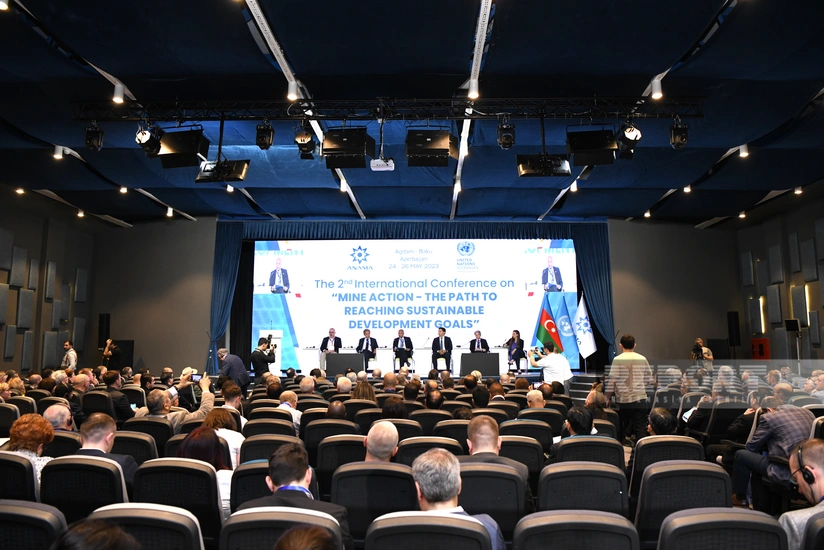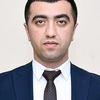'We call on international community to support Azerbaijan's humanitarian mine action efforts' - DECLARATION
- 27 May, 2023
- 06:37

A declaration was adopted at the end of the 2nd International Conference on "Mine Action - the Path to Reaching SDGs" organized by the Azerbaijan National Agency for Mine Action (ANAMA) and the United Nations (UN).
Report presents the full text of the declaration below:
"Over 60 states remain contaminated by landmines and explosive remnants of war (ERW) after many years, threatening the safety, health, wellbeing, lives and livelihoods of generations of people. The most vulnerable populations, including women and children, are the most affected.
"For affected countries and communities, the impact of landmines and ERW is an impediment to achieving the 2030 Agenda for Sustainable Development and the Sustainable Development Goals (SDGs) at the national and local levels.
"To accelerate progress towards a mine-free world, we, the participants to the 2nd International Conference on “Mine Action – the Path to Reaching SDGs,” agree to take bold actions to advance global mine action, inter alia by:
"Recognizing that humanitarian mine action is one of the prerequisites for sustainable development in mine-impact countries, progress towards achievement of the SDGs, accelerating peace processes and sustaining peace;
"Sharing the principles and values of the existing international legal instruments that regulate or ban the use of landmines, cluster munitions, and other ERW, while encouraging all to take steps towards formal adherence to these instruments, including the Convention on the Prohibition of the Use, Stockpiling, Production and Transfer of Anti-Personnel Mines and on Their Destruction (“Ottawa Convention”) and the Convention on Cluster Munitions (“Oslo Convention”);
"Recalling the human cost of landmines and ERW, which disproportionately affects the most vulnerable, including women and children;
"Emphasizing the importance of humanitarian mine action to be integrated into national development plans in mine-impacted countries as one of the key priorities for socio-economic development and adequate resources to be allocated, including for strengthening the national humanitarian mine-action capacities;
"Acknowledging the important roles of civil society, private sector, media, educational institutions and other stakeholders in humanitarian mine action, under the leadership of national Governments;
"Promoting the efficient use of technology and innovation for humanitarian mine action;
"Renewing commitments to strengthen global partnership and cooperation, in support of national efforts and as a demonstration of global solidarity, to achieve a mine-free world; and,
Appreciating the initiatives by a number of mine-impacted states to adopt a national SDG on humanitarian mine action and calls for inclusion of a new global SDG on humanitarian mine action.
"We further call for a renewed global momentum for a mine-free world, to end the threat of landmines and ERW, support communities as they heal, and help people return and rebuild their lives in dignity, safety and security, by joining and fully implementing the existing international instruments, strengthening existing partnerships and building new platforms.
"We express gratitude to the Government of the Republic of Azerbaijan for the valuable opportunity to discuss humanitarian mine action and SDGs, and for their generous support and excellent hospitality. We also express our solidarity with Azerbaijan – as well as all with all mine-affected countries - in addressing their immense mine problem and call on international community to support Azerbaijan’s humanitarian mine action efforts."
